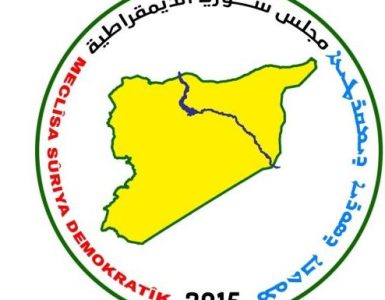The Syrian Democratic Council (SDC) in coordination with the Democratic Union Party held a dialogue seminar in the city of Aleppo. That seminar was held on commemorating of the twentieth anniversary of the March 12 Uprising and the thirteenth anniversary of the start of the Syrian Revolution.
The seminar commenced with a speech by Fatima al-Husseino, an administrator in the SDC’s Relations Office. She talked about the Kurdish people’s uprising in 2004. “The Qamishli uprising was considered the first move of the Syrian people in demanding their rights and protesting against the dire reality they lived at that time. That was followed by the popular movement that began in March 2011, which was the second move of the revolutionary movement, starting from Daraa and extending later to all Syrian regions,” al-Husseino stated.
” After evaluating the reality of the revolution and the state of the national democratic opposition, we, as the SDC members, affirm that there is no solution in Syria unless the Syrians unite, especially in light of the unstable international situation that does not take priority for resolving the Syrian crisis,” al-Husseino emphasized.
Aisha Hisso, a member of the General Council of the Democratic Union Party, considered the events occurred in the 2004 Uprising were as an attempt to incite a Kurdish-Arab strife. However, the popular response came as an uprising against the government policy that included killings and arrests carried out by the government security apparatus.
She added that the Uprising was not a mere riot but represented demands for change and a refusal to accept the status quo. “The Qamishli uprising was the fundamental basis for the launch of the Syrian Revolution which has been continuous so far,” Hisso stated.
In a related context, Walid al-Ghubari, a Syrian politician, stated that the March 12 Uprising did not arise randomly but it was a result of underlying political and social factors that caused an imbalance in the Syrian structure.
“The 2004 uprising was the starting point of the Syrian Revolution and was considered one of the most significant stages where the regime attempted to eliminate the unity of the Syrian components. Those components persisted their demands to change the dire situation,” al-Ghubari stated.
Alaa al-Din Kalo, a human rights advocate, pointed out that the Qamishli Uprising represented the fundamental pillar of the Syrian revolution. However, political regimes exploited the Revolution, changed its real path and turned Syria into an arena for regional and international conflicts to advance their agendas.
It is noteworthy that March 12 marks the 20th anniversary of the Qamishli massacre and uprising, that occurred in the Qamishli stadium during a football match between al-Jihad and al-Futuwa teams. That Uprising occurred seven years before the Syrian Revolution. It removed the constrains based on fear and terror, resulting in the killing of dozens of casualties and the arrest of thousands of Syrians.










